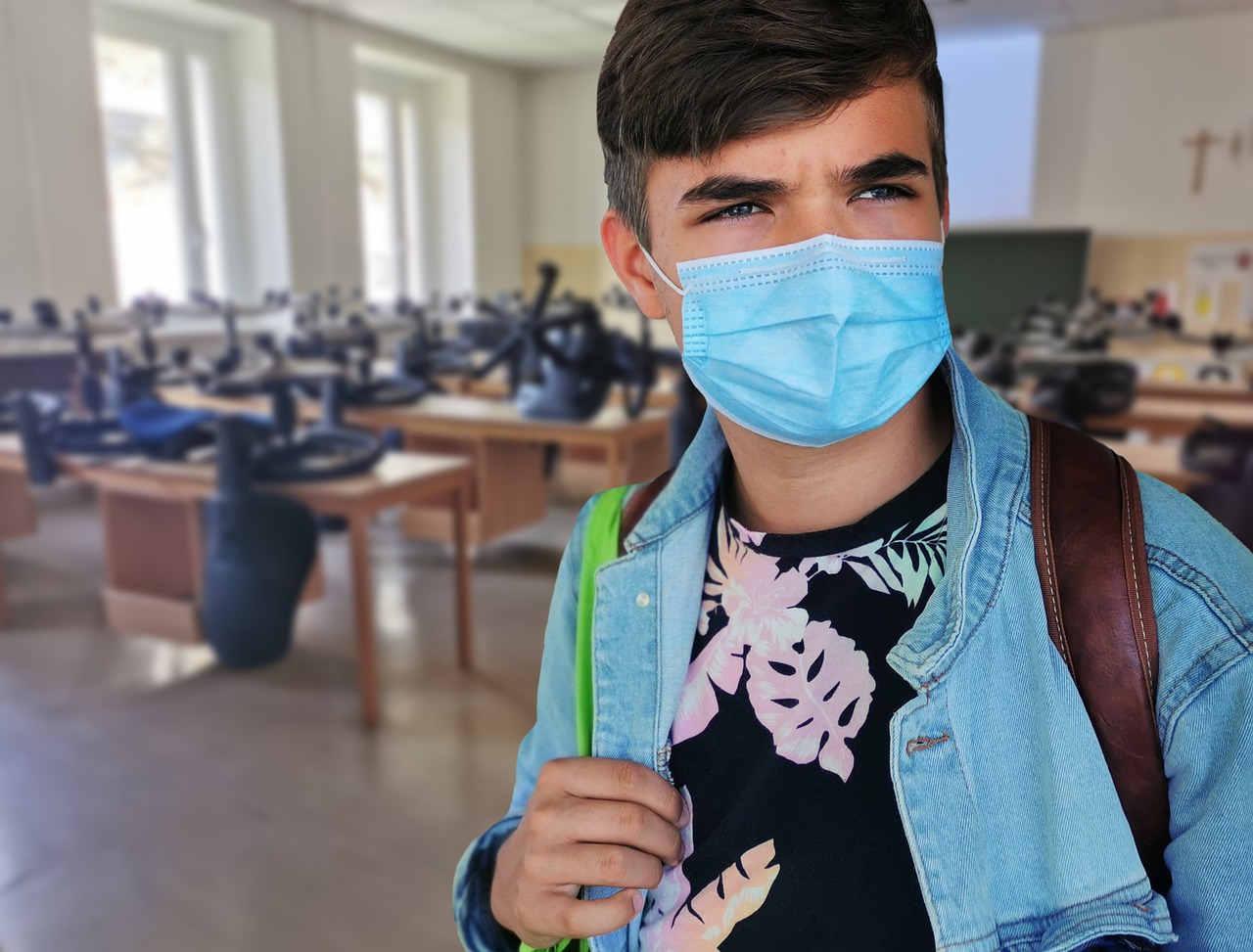By Daniela Brenes Araya - Student of Bachelor of Science in Business Administration
The never ending “vacation”. When universities closed, we thought this meant we would go home and rest from our daily routines and school workload. We weren’t ready for the challenges COVID-19 would bring to our mental health. The Texas A&M University showed that 71% of students indicated increased stress and anxiety due to COVID-19 (Sasangohar, 2020). The rise of suicides, anxiety, and depression made universities worried about student’s mental health. As the importance for strategies that target this problem rouse, soft skills demonstrated to be an effective asset. Through communication and personal skills students would be given tools to handle their feelings while organizing themselves better in the future to reduce their stress levels. (Berman, 2020).
Communication skills could be beneficial and even improve student’s mental health. According to different studies, hope and resilience have significant direct effects on psychological health and well-being (Yildirim & Arslan, 2020). Because in neurosurgery patients the spread of these messages has led to increase motivation and a sense of purpose, it would be beneficial for students to use this method to coupe with mental health problems, as it could give them a hope for a positive future. According to Saladino (2020) “suicidal behaviors are often related to the feeling of anger associated with stress” (para. 4). Therefore, it’s also important for students to have an constant and truthful interaction with others.
The courtesy phrase “How are you” has been used during this outbreak as a space for people to express their feelings to others. It’s important for students to have these interactions, in order to acknowledge that they aren’t alone. On the other hand, setting expectations vs. reality is also beneficial for poor mental health. Helping students make meaning out of the circumstances they are living, by creating an understanding of what’s happening and what responses are appropriate, can help set a balance between expectations and reality (Smet et al., 2021).
In addition, personal skills can also improve student’s mental health. The lack of time-management provokes anxiety and lack of sleep. During COVID-19 a Texas study showed students faced with time-management problems, as 89% indicated difficulty in concentrating on academic work due to various sources of distraction (Sasangohar, 2020), therefore, making the levels of stress increase due to the lack of time-management skills. In terms of organization, it’s important for students to have a balance between schoolwork and hobbies. People with hobbies rarely suffer from stress and depression and actually tend to feel happier and more relaxed. (Relojo, 2020). Adaptability, on the other hand, has the ideology that a positive environment correlates with a positive mental health. Disillusionment occurs when deeply held beliefs and expectations are challenged by circumstances. By creating a mindset of reconstruction and resilience, students can regain a sense of stability. Changing their narrative from “what we have lost” to “the better days to come”, will help reignite individual motivation, well-being, and productivity in the workforce (Smet et al., 2021).
However, some studies show that soft skills can’t help students with poor mental health. Soft skills are inborn and not taught, meaning that they relate to personality traits and not to classroom learning skills. It’s important to understand that there are individual differences in soft skills (Whitehurst, 2016). The combination between those differences and the individual differences in mental health problems will cause the soft skills strategies to be inefficient, as the strategies focus on the general group problems and not on the individual issues. Making an introvert speak about his feelings won’t help the student feel less alone but provoke the student to feel self-conscious about his personality.
In conclusion, the implementation of soft skills strategies could help student’s coup to certain extend with the mental health consequences suffered during COVID-19. As though these strategies maybe wouldn’t coupe with every individual mental health problem, universities would still be providing a base on how to develop a mindset of resilience and reconstruction. After all, when all you can see is dark, a small push can help you start seeing the light at the end of the tunnel.
MOXIE es el Canal de ULACIT (www.ulacit.ac.cr), producido por y para los estudiantes universitarios, en alianza con el medio periodístico independiente Delfino.cr, con el propósito de brindarles un espacio para generar y difundir sus ideas. Se llama Moxie - que en inglés urbano significa tener la capacidad de enfrentar las dificultades con inteligencia, audacia y valentía - en honor a nuestros alumnos, cuyo “moxie” los caracteriza.
References:
-
Berman, G. L. (2020, September 21). Supporting Students’ Mental Health During COVID. Child Mind Institute. https://childmind.org/article/supporting-students-mental-health/
-
Relojo, D. (2020, July 12). Why Is Having a Hobby Beneficial for Your Mental Health. Psychreg. https://www.psychreg.org/hobby-mental-health/
-
Saladino, V. (2020, October 2). The Psychological and Social Impact of Covid-19: New Perspectives of Well-Being. Frontiers. https://www.frontiersin.org/articles/10.3389/fpsyg.2020.577684/full
-
Sasangohar, F. (2020, September 9). Effects of COVID-19 on College Students’ Mental Health in the United States: Interview Survey Study. PubMed Central (PMC). https://www.ncbi.nlm.nih.gov/pmc/articles/PMC7473764/
-
Smet, A., Tegelberg, L., Theunissen, R., & Vogel, T. (2021, January 8). Overcoming pandemic fatigue: How to reenergize organizations for the long run. McKinsey & Company. https://www.mckinsey.com/business-functions/organization/our-insights/overcoming-pandemic-fatigue-how-to-reenergize-organizations-for-the-long-run?cid=other-soc-lkn-mip-mck-oth---&sid=4231384468&linkId=105436305
-
Whitehurst, G. J. (2016, March 24). Hard thinking on soft skills. Bookings. https://www.brookings.edu/research/hard-thinking-on-soft-skills/
-
Yildirim, M., & Arslan, G. (2020, November 14). Exploring the associations between resilience, dispositional hope, preventive behaviours, subjective well-being, and psychological health among adults during early stage of COVID-19. Current Psychology. https://link.springer.com/article/10.1007/s12144-020-01177-2?error=cookies_not_supported&code=78cf9b8b-8252-4bee-84ef-15af9dc9f9f7
